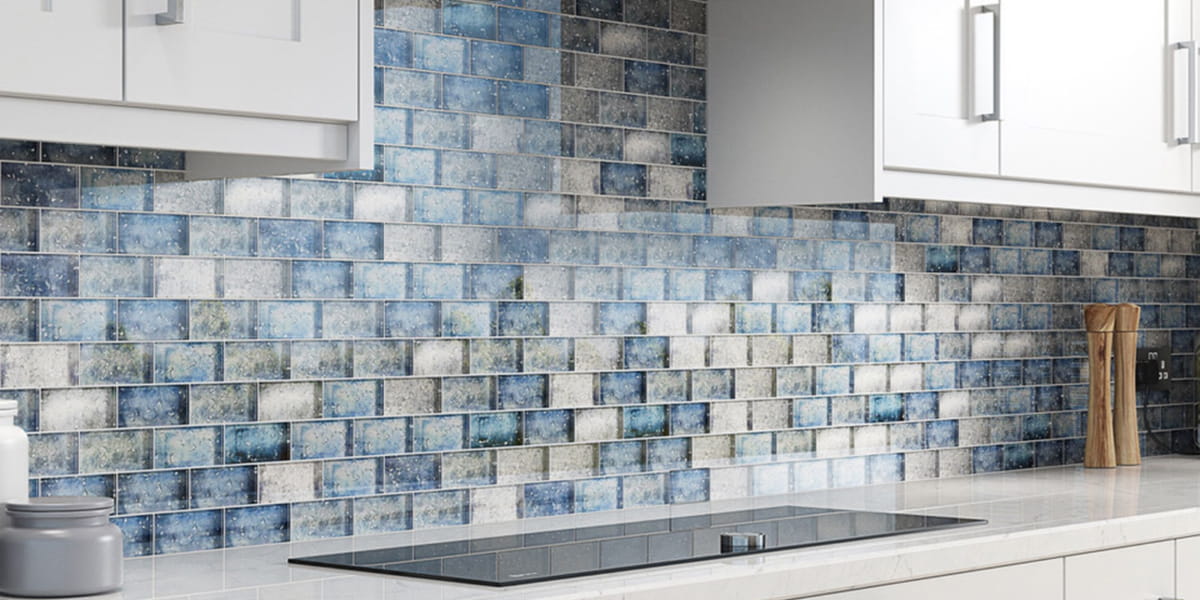Published on November 21st, 2022
Last updated on February 3rd, 2023
Types Of Tile Flooring: Discover What Is The Best Floor Tile
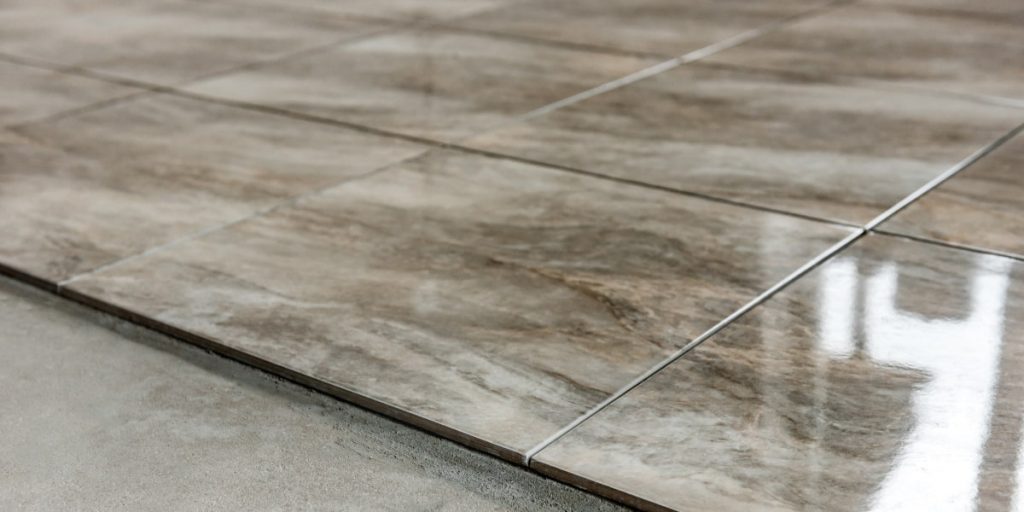
When choosing the floor, many people prefer different types of tile flooring. And it is for a good reason. Floor tiles have many advantages over roll materials. It can withstand heavy loads, and some types can even withstand up to a thousand tons. The material is also resistant to temperature changes and does not slip, which is why it is often found in baths and saunas.
However, multiple types of tile floors are available; how do you know which is appropriate for your requirements? This blog post will examine the various tile flooring options and their benefits and drawbacks.
We’ll also advise selecting the best kind of tile floor for your particular room. So read on to learn more about the many kinds of tile floors, whether you’re planning to install tile flooring in a new home or modify an existing space!
Ceramic Tile Flooring
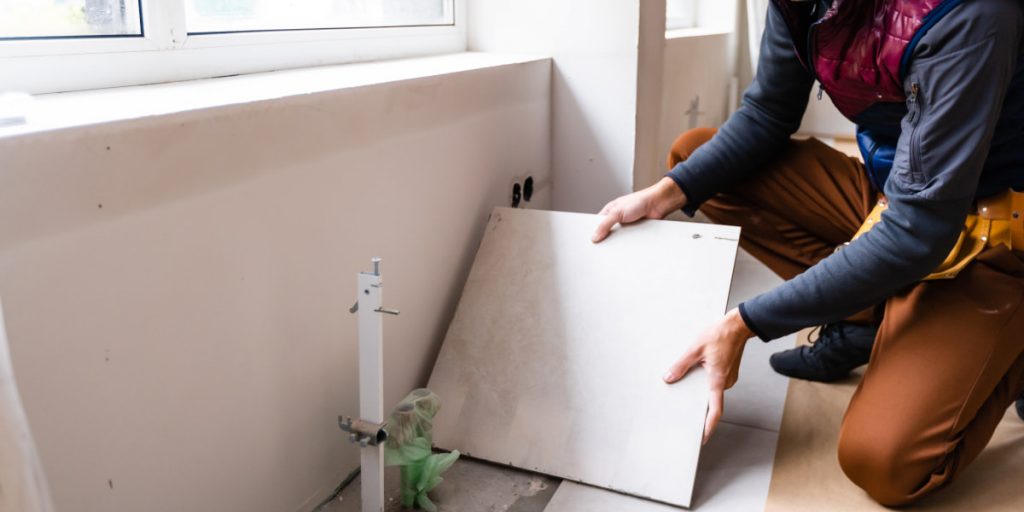
Ceramic tile might be one of the most common choices for flooring. Tiles are created by manufacturers using kiln-fired natural materials like clay and sand. Ceramic tile, durable and long-lasting, is one of the best options for tile flooring in high-traffic areas like kitchens, bathrooms, and hallways.
Finding the ideal ceramic tile for your space is simply because it is available in a wide variety of colors, sizes, and styles. A ceramic tile is an excellent option if you want a tile floor that is simple to maintain. Regularly sweep or vacuum up dirt and dust, then wash with a mild detergent.
Advantages:
- Available in many colors, sizes, and styles;
- Easy to clean and maintain;
- High durability.
Disadvantages:
- This style of tile can be slippery when wet, so better choices for bathrooms or other areas with water may exist.
- All ceramic tiles come from natural materials. So they can be prone to stains and scratches.
Metal Tile Flooring
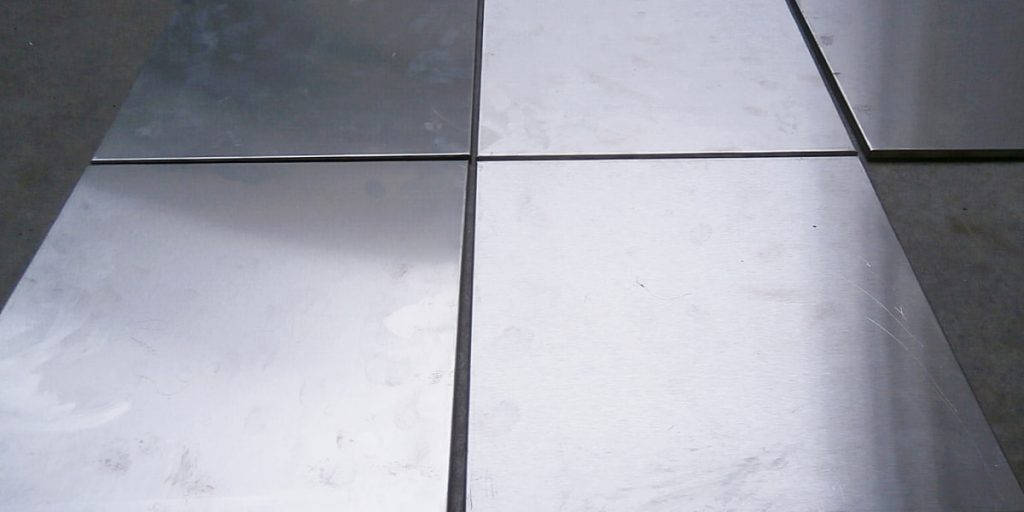
If you’re looking for a stylish and durable floor that expresses some personality, the metal tile would be the best option for tile flooring. Metal tile is made of aluminum, brass, or copper and is often used in high-end homes. It is a great way to make your home look elegant yet homely.
Advantages:
- This floor tile material also comes in various colors and styles, so it’s easy to find the right fit for your space and create the perfect look for your home.
- Metal tiles are also very durable and can withstand heavy foot traffic.
- They are also easy to care for – sweep or vacuum regularly to remove dirt and dust.
Disadvantages:
- Because these types of tiles are smooth, they can be slippery when wet. Therefore, they may not be the best choice for bathrooms or other areas with water.
- But we can still highlight the disadvantage that the tiles are quite expensive.
Porcelain Tile Flooring
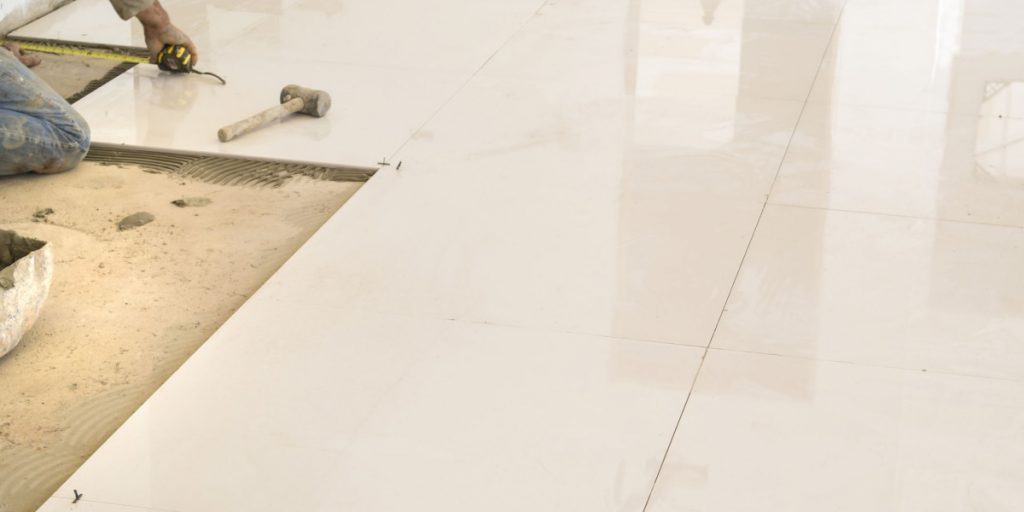
Porcelain tile is a ceramic tile, but manufacturers make it from thinner and denser clay, so to speak, another style of tile. When making porcelain stoneware, manufacturers fire it at a higher temperature, making them more rigid and durable. They are also less porous and less likely to absorb stains.
Advantages:
- Porcelain tiles are available in many colors and styles, so it’s easy to find the right option for your room and home.
- Although this tile option seems quite delicate at first glance (because it is thinner than ceramic tiles), in terms of quality, it is not inferior to ceramic tiles at all.
- You can vacuum, sweep, and even mop with a gentle detergent.
Disadvantages:
- They are best installed by a professional. Installing porcelain tiles yourself is complex, and the installation process can be time-consuming.
- And even though the tile looks thin, it is still denser and tougher, and therefore the price is unfortunately higher.
Glass Tile Flooring
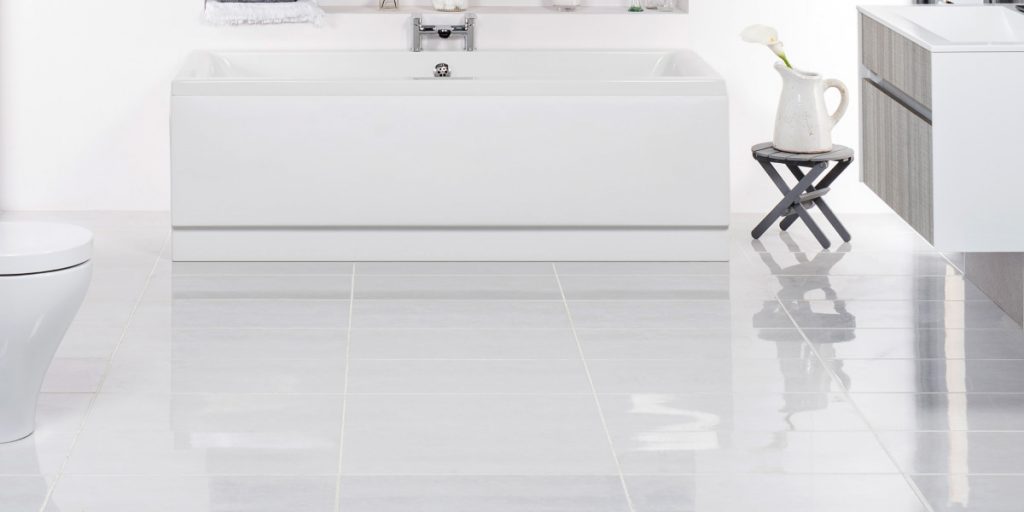
Glass tiles are made from, you guessed it, glass! Glass tiles are usually transparent or translucent, giving them a unique look that can add some personality to your space. They are also available in a wide range of colors. Yes, it can be more than just transparent, in case you suddenly thought so.
You probably think that glass floor tile materials are very fragile. But we disagree with you! Glass tiles are durable and can withstand quite a lot of foot traffic.
Advantages:
- The care of glass tiles is elementary. Let’s be honest; after all, any floor tile is much easier to care for than a carpet. You only need to vacuum or sweep the tile, and if there are any stains, it’s easy to clean them off in a couple of moves.
- Tiles are very durable, even though at first glance it seems fragile.
Disadvantages:
- However, glass tiles can be more expensive than other different types of tiles.
- Because they are smooth and slick, they can be slippery when wet. So, they may not be the best choice for bathrooms or other areas with water.
Quarry Tile Flooring
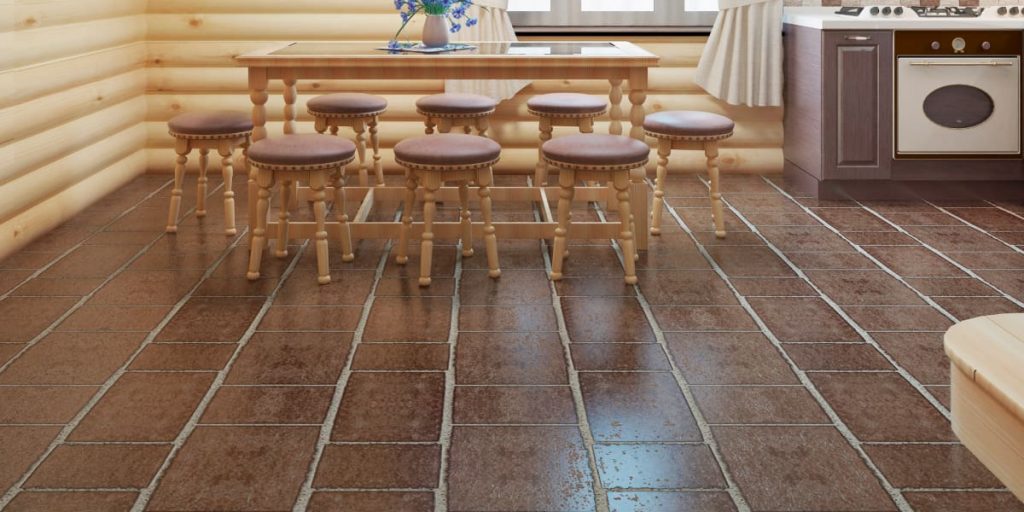
Quarry tile is a type of unglazed ceramic tile. It is usually made of red or brown clay. The quarry tile is a very dense and durable material.
Advantages:
- This kind of floor tile is slip-resistant, making it a good choice for wet areas such as kitchens or bathrooms.
- This type of tile flooring, as well as others, has a wide range of colors and different designs, so you can certainly choose one.
Disadvantages:
- On the other hand, the downside of quartz tile is that it is difficult to clean.
- The surface can be quite porous, so dirt and grime can accumulate over time.
- Quartz tile is also a pretty hard material. So it can be uncomfortable to stand on for a long time, but this is the personal wish of the person.
Cement Tile Flooring
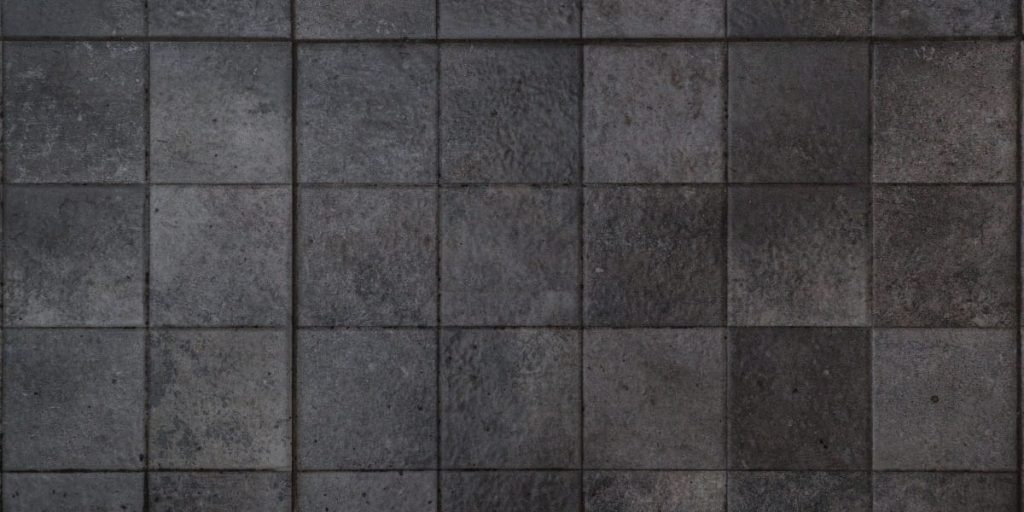
Cement tiles are a type of tile made from cement and other materials such as sand, water, and coloring pigments to create the desired color. Cement tiles are usually square or rectangular and have a textured surface.
Advantages:
- This kind of floor tile withstands heavy traffic and is often used in commercial spaces.
- Additionally, water- and fire-resistant cement tiles. Tiles made of porcelain or ceramic, however, are more heat resistant.
- Cement tiles come in a variety of colors and designs. You can find cement tiles that mimic stone or even wood. You can even find them in fun geometric patterns! And if you thought cement tile only came in sulfur shades, you’d be wrong.
Disadvantages:
- Because cement tiles are porous, they can be susceptible to stains. So it’s essential to caulk them periodically to protect them from spills and other stains.
- And another disadvantage of cement tiles is that they are challenging to install.
- Cement tiles are also more expensive than different types of tiles.
Marble Tile Flooring
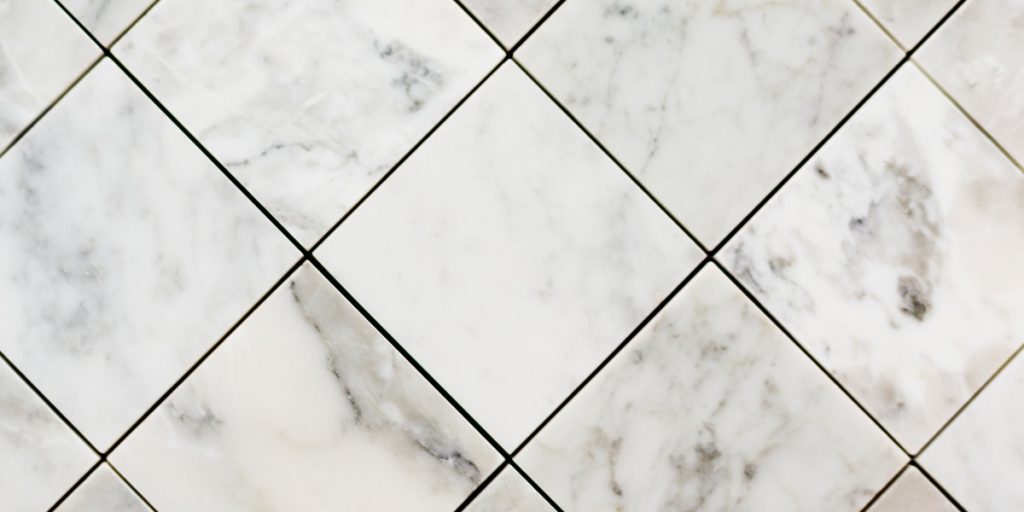
Marble is a luxurious material used for centuries to add beauty and sophistication to homes and buildings. You have probably seen marble tiles at least once in your life. Numerous things made of marble, including this tile option. Manufacturers make marble tiles from natural stone and presented in a wide range of colors.
Marble is a soft stone. But unfortunately, you can easily scratch the tiles, or crack them. And because it is a natural material, each tile is unique, so some color variation between tiles is possible.
Advantages:
- Natural material is always strong and durable.
- Each tile is unique due to the fact that the material is natural.
- Available in a variety of colors and styles.
Disadvantages:
- Marble also needs periodic treatments to protect it from stains.
- In addition, marble tiles can be pretty slippery when wet, so they may not be the best choice for bathrooms or other areas with water.
Mosaic Tile Flooring
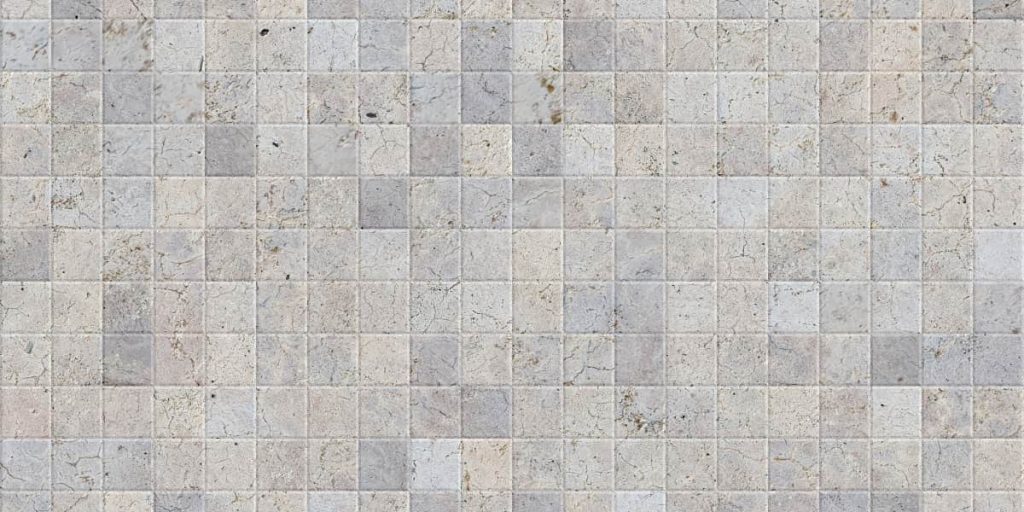
Mosaic tiles you have 100% seen in your life and more than once. If you are looking for the best tile flooring, mosaics are just for you. Mosaics are not large tiles usually made of different materials (e.g., glass, stone, ceramic).
Advantages:
- They are available in a wide range of colors and designs.
- You can use mosaic tiles to create a variety of patterns, and you can combine different colors. Or, you can choose one color option and cover the entire floor in one color. Our favorite combination is to incorporate this style of tiles of the same color but different shades (for example, pink lighter and darker).
- Mosaic tiles are usually easy to clean and maintain.
Disadvantages:
- However, mosaic tile with grout can be more challenging to clean because grout accumulates dirt and grime over time. And here, we can conclude that in a room with a high risk of contamination (such as the kitchen), it is better not to use this type of tile for the floor.
- And since mosaic tiles are small, they can be challenging to install. It takes time and patience to put them together!
Granite Tile Flooring
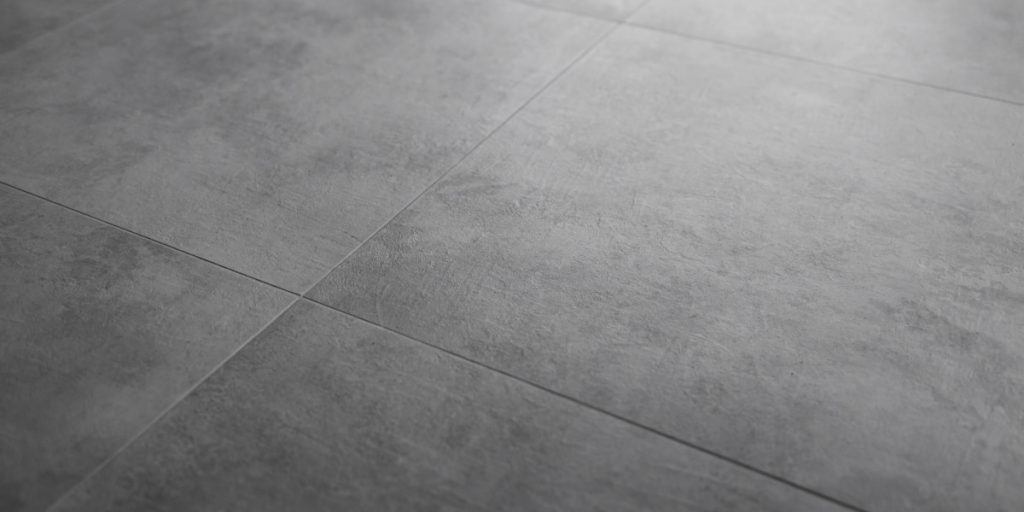
Granite is a natural stone, so when it comes to this type of tile flooring, each tile is unique. Granite tiles are available in a wide range of colors and designs. And if you thought that granite tiles come in certain standard shades, you’re wrong. There is an option of green, pink, and even blue granite!
Advantages:
- This floor tile material is hard, so that it can withstand a lot of stress.
- It is also heat-resistant and water-resistant. However, ceramic or porcelain tiles are more heat resistant.
Disadvantages:
- By nature, granite is slightly porous, so that it can be prone to dirt and stains. Therefore, it should be periodically treated to protect it from spilled liquids and other stains.
- And, of course, natural material costs quite a bit of money. So if you can afford to lay expensive material, you will not regret anything.
Limestone Tile Flooring
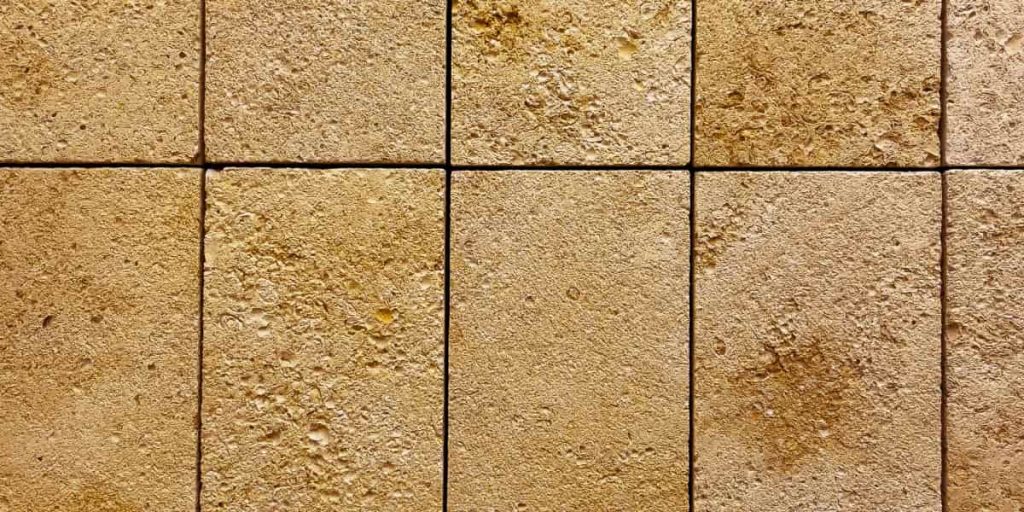
Limestone is a sedimentary rock that is available in a wide range of colors and designs.
Advantages:
- Because it is a natural material, each tile is unique, so some color variation between tiles is possible.
Disadvantages:
- Limestone tiles are soft and can be easily scratched or chipped.
- They also need regular treatments to protect them from spills and other stains.
- And like all-natural stone tiles, limestone is expensive. So if you want to use this material for flooring, prepare to spend a lot of money.
Soapstone Tile Flooring
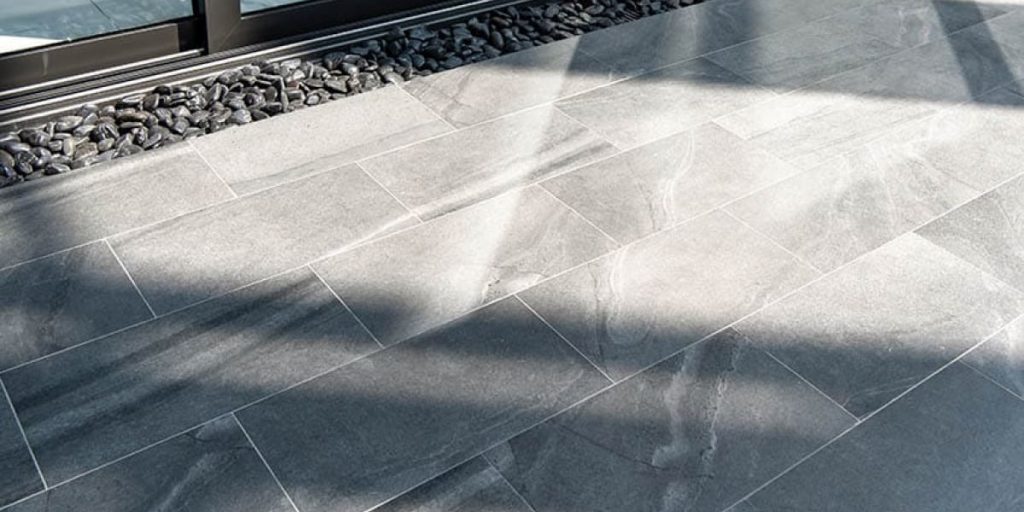
Pretty unusual sounding, isn’t it? Soapstone is a metamorphic rock used for centuries in construction and art. It consists of talc, chlorite, dolomite, and quartz. Soapstone tile flooring is a beautiful, natural option for homeowners who want something unique and the best.
Advantages:
- Soapstone is very smooth and silky to the touch. This type of tile will be a pleasure to walk on.
- It’s a natural conductor of heat, so it’s ideal not only as a floor tile option but also for fireplaces and outdoor kitchens.
- Soapstone is also stain resistant and is not subject to wear and tear over time like other types of tile.
Disadvantages:
- Soapstone is a soft material, so it scratches easily.
- Compared to other types of tile, it is also expensive.
Travertine Tile Flooring
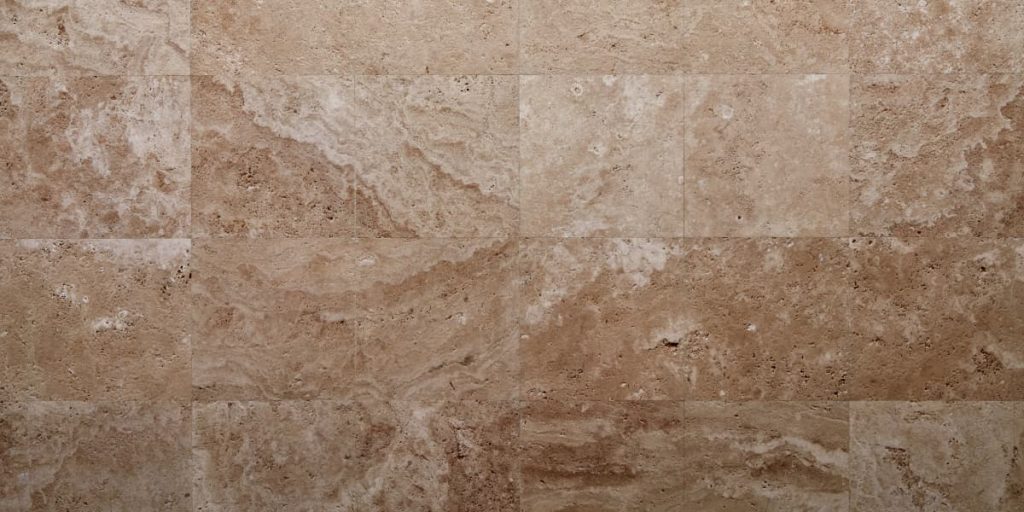
Travertine is a type of limestone. It forms around hot springs or in caves. Its characteristic feature is its dimpled surface and natural color variation.
Advantages:
- These types of tiles are available in various colors, including tan, ivory, white, and muted red and yellow.
- Because travertine is a natural stone, it is durable and resistant to scratches, stains, and wear.
- It is also easy to clean and maintain.
Disadvantages:
- However, travertine is softer than granite or marble, so it is easier to scratch or chip.
- In addition, travertine tile floors can be slippery when wet, so there may be better choices for bathrooms or other wet areas.
Resin Tile Flooring
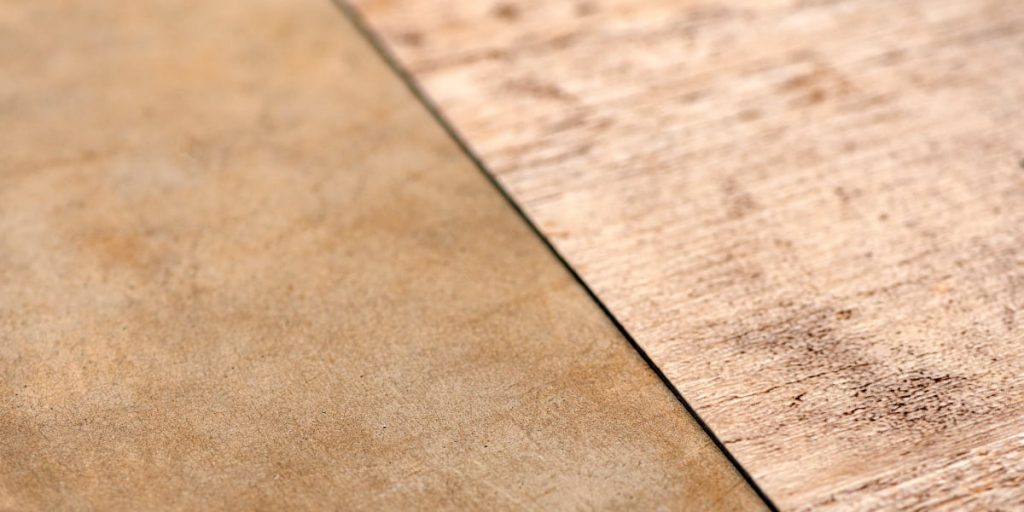
Because resin tiles are made of synthetic materials, they come in many hues and patterns.
Advantages:
- Because resin tiles are sturdy and long-lasting, they can withstand a lot of pressure.
- It is simple to maintain and clean resin tiles.
- Additionally, resin tiles are less expensive than natural stone tiles because they are synthetic.
Disadvantages:
- Tiles are not heat resistant, so they are not suitable in areas where there is a risk of liquid spills or other stains.
- However, they can be slippery when wet, so they should only be used in rooms without slipping (such as the bathroom).
So if you want to use this material for your tile flooring, you will only have to spend a little money.
Tile Characteristics: Which One to Choose?
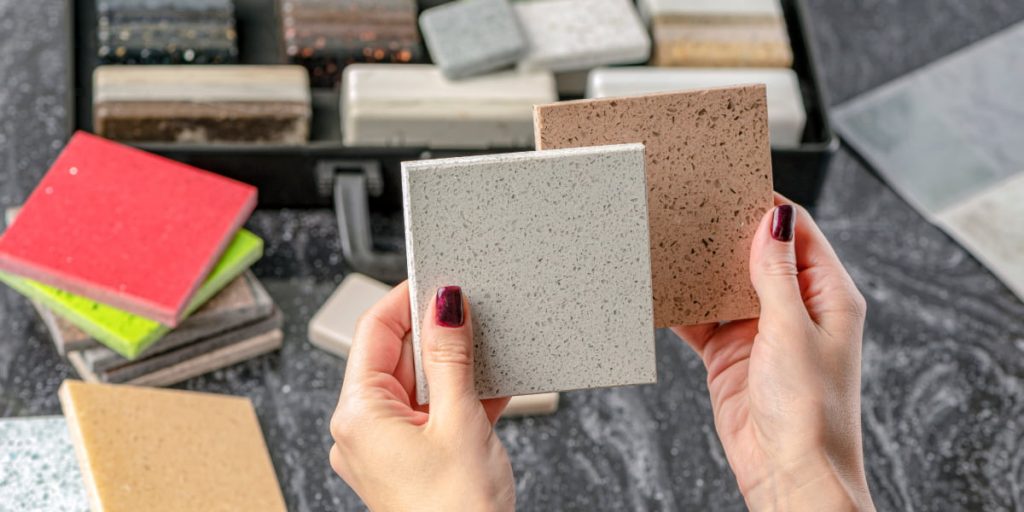
As you can see, there are numerous tile options available. Which one, nevertheless, is ideal for you? Here are some factors to think about before choosing:
The style of the room: Will the tile be placed in an area with heavy or light foot traffic? You’ll need a hardy, scratch- and wear-resistant tile if it’s in a high-traffic area. You might prefer a tile that is more attractive but less durable if it is in a low-traffic area.
Your budget: Kinds of floor tiles can be expensive, so you need to decide how much you will spend.
The color and design of the tile: You should choose a color and design you like. But you also need to consider the overall design of the room. The tile should complement the other elements in the room.
The size of the tile: Tile is available in various sizes. You need to choose a size appropriate for the room and the type of traffic it will receive.
The installation: Some types of tiles are easy to install, while others are more difficult. It would help if you chose a variety of tiles that you feel comfortable installing.
Now that you know all about the different types of tile, you can decide which one is best for your home.
FAQ
What is the best floor tile?
There is no best floor tile. It all depends on your needs and preferences.
Can a tile floor break?
While tile is a solid and durable material, it can break if it is hit with a heavy object or installed incorrectly.
How do I clean my tile floor?
You should regularly sweep or vacuum your tile floor to remove dirt and dust. For tough stains, you can use a more robust cleaning solution. You can also mop the floor with a mild soap and water solution.
How long does tile flooring last?
Tile flooring is very durable and can last for many years. With proper care and maintenance, your tile floor can last a lifetime.


